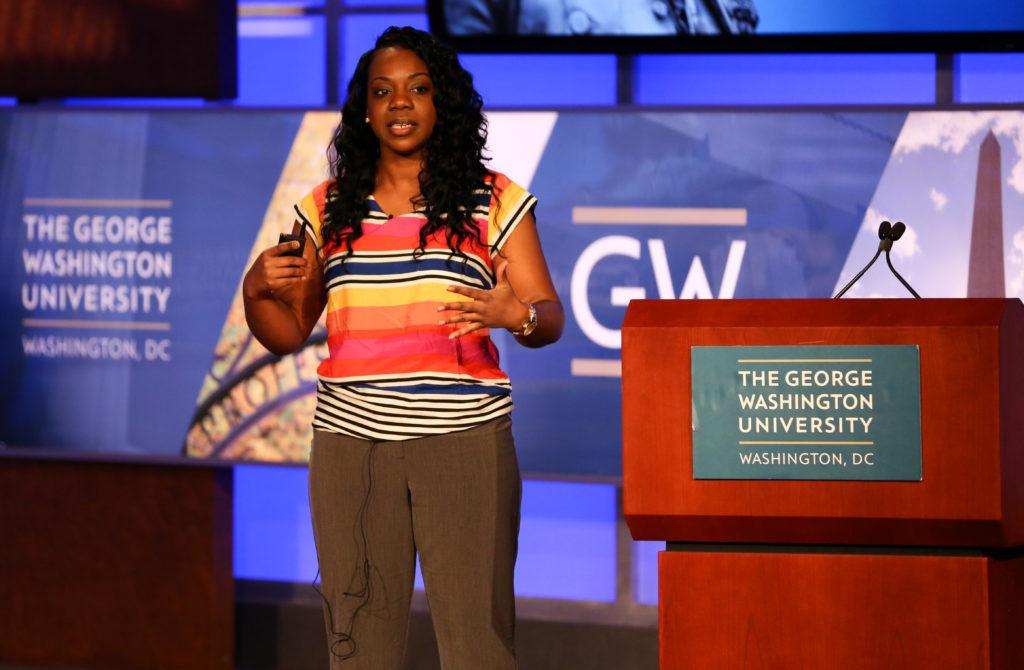The creator of the viral hashtag #WhyIStayed, a campaign to raise awareness for survivors of domestic violence, shared her personal experience with domestic abuse during her keynote address Tuesday.
In an hour-long discussion at Jack Morton Auditorium, Beverly Gooden discussed the intimate details of her personal experience and how she used that to help others and redefine the conversation around domestic violence. The event was hosted by Students Against Sexual Assault as part of Sexual Assault Awareness Month, which will include other events throughout the month.
Even through regular pushing, shoving and choking, Gooden stayed married to her college-sweetheart for years because she truly believed their love could conquer the abuse, she said. It took one near-death experience for her to decide she had to find a way out.
“One day, I woke up and I decided that I wanted to live more than I wanted to be married to him,” Gooden said.
It all started with one daring tweet in which she described an abusive episode, Gooden said. After she posted the tweet during a September 2014 lunch break – she quickly started a movement.
I tried to leave the house once after an abusive episode, and he blocked me. He slept in front of the door that entire night. #WhyIStayed
— Bev Gooden (@bevtgooden) September 8, 2014
Gooden said she never imagined her tweet would resonate with so many people and ultimately spearhead a major social movement. Within a week of her initial tweet, close to 150,000 people had joined the Twitter conversation – all sharing their personal stories using the hashtag #WhyIStayed.
The hashtag is an effort to shift the conversation from the abuser to the victim. Gooden said the conversation is too often focused on asking victims why they failed to leave the situation rather than what caused them to stay in the relationship.
“I want to change the conversation from ‘why we stay’ to ‘why did he abuse,'” she said.
She said shifting the conversation from the abuser to the victim is essential to affecting societal change and reducing the shame associated with “victim blaming.” The tactic is used by the perpetrator to escape responsibility because it neutralizes accountability, she said.
“Victim blaming is so natural to us,” she said. “We immediately turn to the victim and ask what they could have done differently to reduce the violence.”
At the end of her address, Gooden empowered the audience to act when something doesn’t feel right in their own relationships. She also stressed the importance of exhibiting empathy in dealing with these sensitive situations and gave advice on how to speak up for friends or peers if they need help.
To survivors of domestic violence, she said, “healing is continual.”





